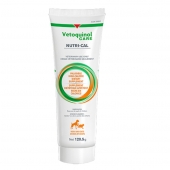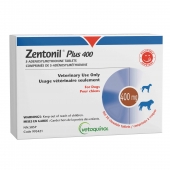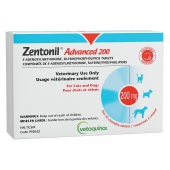It’s easy to tell when someone suffers from seasonal allergies: a runny nose, red eyes and constant sneezing are obvious signs. But while cats and dogs can be bothered by pollen and other allergens too, their symptoms are often completely different. Here’s what you should keep an eye for.
Understanding pet allergies
While the exact symptoms may be different, an allergic reaction from a cat or dog works similarly to what happens in humans. The body overreacts to a harmless substance, such as pollen or dust, and sends the immune system in overdrive. Allergy symptoms are a side effect of the immune system fighting off this perceived enemy.
Pruritus, scratching, biting, licking and rubbing
One of the most common allergy symptoms in pets is itchiness, or pruritus. Your cat or dog tries to relieve the discomfort by scratching or biting the inflamed skin. The animal may also vigorously rub their face against furniture or scoot across the carpet. And while cats lick their paws as part of their normal grooming routine, a dog that compulsively licks their paws may be displaying a sign of allergies. If the problem persists, contact your veterinary clinic for advice.
Skin infections
If left unchecked, compulsive scratching and biting may cause skin lesions which can become infected. If the affected skin appears red and moist, the lesions have a discharge or an odour, if your pet suffers from lethargy, shows a decrease in appetite or if the condition shows no improvement after a day or two, contact your veterinary clinic.
Fur loss
All this scratching and licking may cause your pet to lose fur in the areas that have been bothering them. This can also be a sign of infection. The most important step towards helping the fur grow back is to control your pet’s pruritus. If the itchiness is severe enough to reach this stage, your cat or dog likely needs help from your veterinary clinic.
Ear infections
Dogs with allergies are also more likely to experience ear infections. Head shaking, persistent scratching and smelly or inflamed ears can all point to an ear infection, a painful problem for your pet that requires a visit to your veterinarian. Your veterinary team can recommend an ear cleaning routine which may help prevent reoccurrence in the future.
Cats and feline asthma
While this presentation is less frequent, cats with allergies may experience respiratory issues, often referred to as feline asthma. Frequent coughing, wheezing or obvious difficulty breathing should be addressed quickly with a visit to your veterinary clinic. These cats can often do quite well with inhaled steroids, which come in the form of a ‘kitty puffer,’ similar to humans with asthma. Other medications can also be used to help improve their breathing.
Allergy treatment for pets
While allergies can never be completely cured, their symptoms can be managed. Regular baths using a mild shampoo formulated for pets can temporarily ease the discomfort by washing away allergens from the animal’s fur. It’s also a good idea to wash your pet’s bedding and blankets frequently to avoid allergen build-up in the fabric. For a more durable treatment, your veterinarian may recommend medication such as antihistamines, steroids or specialized medications to block pruritus. Some pet owners also choose to proceed with referral to a veterinary dermatologist to discuss long-term immunotherapy options.






